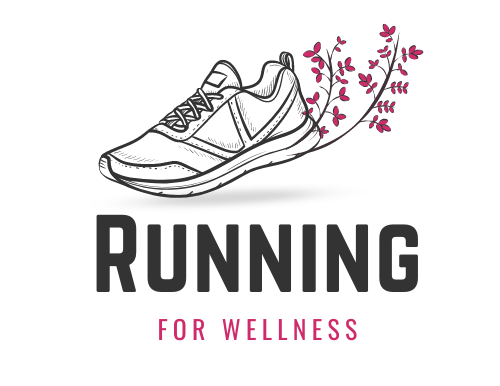Short answer? If you don’t actively protect your reputation as a fitness coach online, the internet will build one for you.
And it won’t always be flattering.
You can have the best workout programming in the world, but if your clients think you’re careless, unreachable, or unreliable, that six-pack expertise won’t mean much. One frustrated DM. One poorly handled transformation story. One “I paid and got ghosted” TikTok, and suddenly, people are canceling before you can say “progressive overload.”
So no, this isn’t about being perfect. It’s about being trustworthy—and staying that way.
Table of Contents
Toggle1. Overpromising Body Transformations You Can’t Guarantee

Telling someone they’ll drop 15 pounds in two weeks or get abs by summer sounds motivational—until it doesn’t happen. Unrealistic promises aren’t just misleading, they set people up for disappointment and burnout.
Even if you believe in your process, everyone’s body responds differently. If you pitch a universal “beach body in 30 days” plan and someone doesn’t get results, they’re not just bummed—they feel lied to. And people talk.
Instead, be honest about what’s typical and what takes time. Say: “Many of my clients see strength or energy gains within the first month.” It builds way more trust than claiming you’re a magician with macros.
2. Ghosting Clients During Their Program
Few things kill trust faster than silence. If a client is mid-program and suddenly can’t reach you, it doesn’t matter why—you’ve lost credibility.
Maybe life happened. Maybe you hit a rough patch. That’s human. But to your client, it looks like: “You took my money and dipped.” When that story hits group chats or fitness forums? It spreads.
Prevent that by setting expectations up front. Use automated check-ins, share your coaching hours, and if something pulls you away unexpectedly, communicate. A quick “Hey, I’m out this week but here’s what to do next” goes a long way.
3. Copying Other Coaches’ Styles or Content
It’s tempting to borrow what’s working—same workout names, same video style, same “glute growth secrets” tagline. But when you start sounding just like every other influencer with a booty band, you lose your voice.
Clients don’t want clones. They want coaches who feel real. If your content reads like a recycled script, it gets ignored—or worse, called out.
Your edge is your experience. Your personality. Your coaching philosophy. If you’re goofy, let that show. If you’re technical, lean in. Own your approach and make sure it feels like something only you could say.
4. Ignoring Feedback From Real Clients
Let’s say a client tells you your app keeps crashing. Or that the warm-up isn’t right for their mobility. Or that they’re confused about when to rest. If your answer is basically “deal with it,” you’ve got a problem.
Worse, if they don’t feel heard and have to go public to get a response? That’s on you.
The smartest coaches know feedback is data. It helps you fix blind spots and keep clients coming back. Even a grumble about workout length or equipment access is a chance to adapt—and show you care.
5. Sharing Client Details Without Consent

Transformation stories are powerful. But if you’re posting someone’s before-and-after, progress notes, or injury recovery story without explicit permission? You’ve crossed a line.
It doesn’t matter if you “didn’t use their name.” If they can recognize themselves—or if others can—that’s a breach of trust. In some places, it’s also a legal issue.
Always get written permission. Blur faces, change names, and double-check before hitting “post.” Respect isn’t optional. It’s part of the job.
6. Making Your Programs Too Complicated
The average person wants to move more, feel stronger, and not spend 20 minutes figuring out which Google Sheet to open. If your program has too many folders, apps, or confusing instructions, people disengage.
Simplicity sells. Not because clients are lazy—but because they’re busy. If they can’t find today’s workout or aren’t sure if they should rest or train, they’ll just stop.
Audit your own process. Can someone new figure it out in five minutes or less? If not, streamline it. One dashboard. One video intro. Clear weekly goals. Done.
7. Responding Publicly to Criticism With Drama

Getting a negative comment stings—especially if it’s inaccurate or unfair. But jumping on your story to rant, call someone out, or “set the record straight” usually makes things worse.
It reads as reactive, not professional. And it makes potential clients think, “What happens if I have an issue with them?”
You can defend yourself—just do it calmly, factually, and in private whenever possible. Often, the quiet fix behind the scenes is more powerful than any clapback.
8. Operating Without Legal & Ethical Boundaries
If you’re not a registered dietitian, don’t prescribe detailed meal plans. If you’re not a physical therapist, don’t “diagnose” someone’s knee pain. Giving advice outside your qualifications can hurt your client—and your rep.
Even vague promises like “I’ll fix your hormones” can get sketchy fast.
Make sure your contracts, disclaimers, and practices reflect what you’re actually trained to do. Protect your business. Protect your clients. And if you’re unsure, talk to a lawyer or professional in your field. Fitness is personal—but it’s also a regulated space.
9. Letting Negative Content About You Spread Without Response
Sometimes your reputation takes a hit not because of what you did, but because of what people think you did. Maybe an ex-client posts a harsh review. Maybe your name ends up in a Reddit thread that gets the facts wrong. Maybe someone screenshots an old post and spins it out of context.
If you’re not paying attention, those posts can linger online, get indexed by search engines, and quietly do damage long after the situation has passed. And when someone Googles your name? That’s what they find first.
That’s why some coaches turn to online reputation services when things get out of hand. According to Guaranteed Removals, a company that works on eliminating harmful or defamatory online content, many professionals aren’t even aware of how far certain posts have traveled until they start losing leads or clients. In some cases, legal pathways or policy-based removal requests can help clean up content that was posted without consent, violates platform guidelines, or creates personal or professional harm.
The bottom line: monitor your name online. Set up alerts, scan search results, and take action early—before a rumor becomes your brand.
10. Making Your Coaching Brand All About You
It’s your brand, your vibe—but if everything you post is selfies, meal pics, and gym mirror shots, it starts feeling empty. You become the star of the show, instead of the coach who helps people get results.
Clients want to see themselves in your work. They want proof that you get them, not just that you’re fit.
Post your workouts? Sure. But also share client wins, breakdowns of why certain routines work, and behind-the-scenes looks at how you coach. Show that your focus is helping others—not just building your own brand.
Final Thoughts
Your online coaching rep isn’t just built through ads or launches. It’s built on quiet decisions: how you handle mistakes, how you talk about clients, how you follow through when nobody’s watching. One slip-up might not sink you, but patterns will.
So if something in this list hits a little too close? Good. That means you care enough to fix it.
Want help cleaning up what’s already out there? Or figuring out where your blind spots might be? Start by looking at what people say when you’re not in the room—or thread.
Because that’s where reputations live.
Related Posts:
- Top 400 Hilarious Gym Quotes to Keep You Motivated
- 25 Simple Running Motivation Tips To Get You Moving
- How Can You Start a Career as a Running Coach?
- Half Marathon Training Plan for Beginners - Simple…
- How Long Does It Take to Train for a Half Marathon?
- 80 Best Motivational Cross Country Running Quotes 2025







